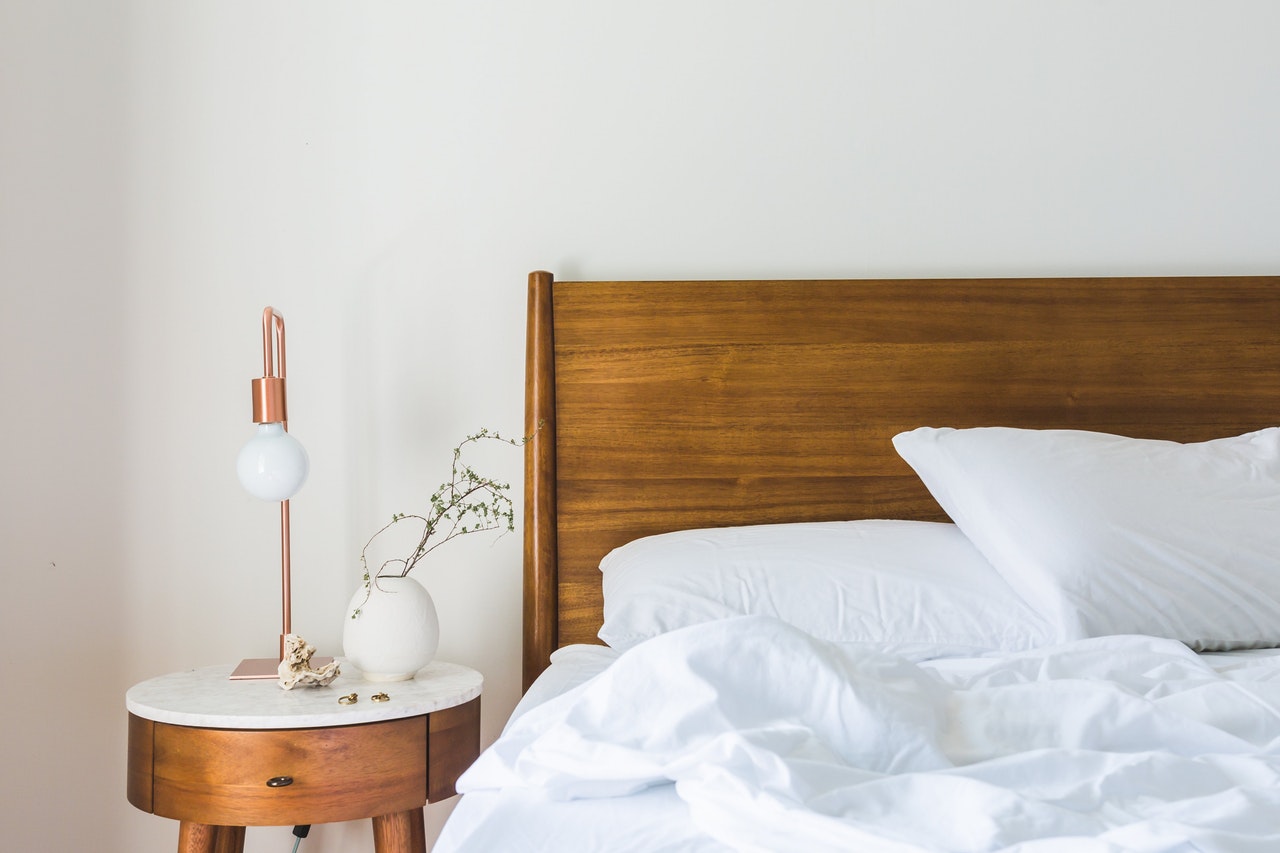How Menopause Can Affect Your Sleep

Menopause is a cycle middle-aged women go through that has some major hormonal, psychological, and physical changes as their ovaries gradually decrease in estrogen and progesterone production. As we all know very well, getting adequate sleep is very vital to a healthy, functioning life - especially when your body is going through a big transition such as menopause. Many female patients in their late 30s-40s with symptoms of insomnia come in for check-ups and are actually experiencing the beginning stages leading up to menopause, called perimenopause. Hormonal and/or lifestyle changes can impact your sleep pattern. Keep reading to find out more about how perimenopause and menopause can affect your sleep, and some solutions to consider trying!
Related: DHEA - Why it is Especially Important for Menopausal Women
How Menopause Can Affect Your Sleep
1. Changes in hormones
From the beginning phases of perimenopause through menopause, the ovaries will gradually decrease estrogen and progesterone production. Progesterone is a hormone responsible for promoting good sleep. The imbalanced ratio of hormones can be an unsettling phase for the body, contributing to the trouble of getting a good night’s rest. The shifting levels of estrogen may also add to other factors and stressors of disrupting sleep.
2. Hot flashes
A hot flash is a sudden feeling of an adrenaline rush, often producing sweat and a change in body temperature that may cause discomfort and disruption from sleep. Hot flashes are usually a symptom of menopause and can take some time for the adrenaline to subside or the body temperature to normalize so you can settle back to sleep.
3. Other stressing factors
Besides the hormonal shifts you go through during this phase in your life, other stressful changes in your social may also interfere with your sleep. Coincidentally, there may be certain life changes such as your children moving out, retiring, moving into a smaller home, or other transitions that may leave you feeling empty or unfulfilled. Many women experience this as their “midlife crisis,” trying to adapt to this new stage in life and this may also affect your ability to sleep as your mind may be deep in thought from worries or anxiety.
Hormonal and social life shifts can cause an impact on your sleep cycle, it is important to know how your sleep is affected during this crucial transitional period of your life. Some women just learn to accept the lack of sleep and adapt accordingly to their new lifestyle as their hormones settle down.
Related: 5 Proven Ways to Slow Down Aging Naturally
When to See a Doctor about Sleep Deprivation due to Menopause

Perimenopause can last anywhere from 3-10 years. If you feel that you are experiencing symptoms of lack of sleep related to perimenopause, it may be a good time to see your general practitioner or gynecologist. There may be certain aspects of your sleep cycle you can control, such as setting yourself up to ensure better odds of getting the best sleep that you can under the circumstances of which you can’t control (hormone changes without medication). It is important to be consistent with the time you wake up and the time you go to bed to build a strong sleep structure for yourself. Also make sure your sleep environment is optimized for great sleep with having a dark, quiet, safe room to sleep in, in a nice cool temperature, with a cloth and a bucket of ice near your bedside when you need to cool down quickly from the occasional hot flash episodes. Try to avoid any alcohol or tobacco consumption late in the day or close to bedtime since it can also interfere with your sleep efforts.
What Treatments are Available for Women Experiencing Insomnia due to Perimenopause/Menopause?
There are supplements you can take to help combat sleep problems called Hormone Replacement Therapy (HRT) which replenishes the body with the necessary estrogen hormone as production slows down during perimenopause and menopause. The HRT has been known to help women reduce experiences with hot flashes, their difficulty with urination, vaginal problems, and more. HRT may improve your night’s rest since it may help reduce a lot of the menopause symptoms that also affects your sleep. Some women also resort to taking a low-dose birth control pill to help stabilize the estrogen fluctuations you may be experiencing.
Related: Biodentical HRT - Safe and EffectiveTreatment of Menopausal Symptoms
Are there Natural Remedies to Reduce Menopause Symptoms?

Some women have tried exercise, relaxation therapy, acupuncture, or paced-breathing exercises to promote better sleep. These natural remedies may help you focus on your body as you settle down for the day to ease into a more relaxed state.
Quick Tips on Coping with Sleep Deprivation During Menopause
Here are some quick tips to recap some possible solutions to help you cope with getting adequate rest during perimenopause/menopause.
- Consider trying hormone replacement therapy (HRT) to provide your body with the estrogen it is lacking as the ovaries gradually starts to produce less of it over the years.
- Have a healthy, well-balanced diet. Maintain small meals throughout the day to help promote a healthy weight. Be aware that spicy or acidic foods have been known to trigger hot flashes. Incorporate foods rich in soy help reduce hot flashes.
- Try to minimize caffeine, alcohol, or nicotine consumption, especially before bed.
- Avoid heavy blankets and opt for lightweight clothing for bed, this may help improve your sleep efficiency. Try using a fan or air conditioning to help keep the room well circulated throughout the night.
- Reduce stress and worry by considering relaxation techniques, breathing techniques, and exercise to help improve sleep as well.
Related: Discussing Women’s Sexual Health
Related: Testosterone in Women - Is it Psychologically and Clinically Important?



